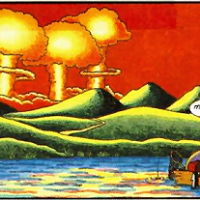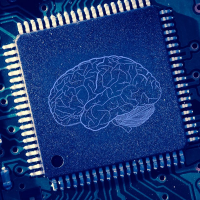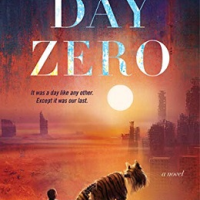 Recently I wrote that I was reading Existence (David Brin, 2012), a novel I found so striking I had to post about it before I was even halfway through. Now I’ve finished it, and I still think it’s one of the more striking books I’ve read recently. (Although a little blush came off the rose in the last acts.)
Recently I wrote that I was reading Existence (David Brin, 2012), a novel I found so striking I had to post about it before I was even halfway through. Now I’ve finished it, and I still think it’s one of the more striking books I’ve read recently. (Although a little blush came off the rose in the last acts.)
Central to the story is the Fermi Paradox, with a focus on all the pitfalls an intelligent species faces. The tag line of the book, a quote attributed to Joseph Miller, is, “Those who ignore the mistakes of the future are bound to make them.” Brin’s tale suggests that it’s well neigh impossible for an intelligent species to survive their own intelligence.
I’ll divide this post into three parts: Mild spoilers; Serious spoilers; and Giving-away-the-ending spoilers. I’ll warn you before each part so you can stop reading if you choose.
I will say that it almost certainly won’t ruin the book for you if you know the ending unless you are very strict about spoiling anything.
And I’m not going to spoil the very ending. There is a little bit of a final twist that I won’t ruin for you.
Essentially, there is the main story, the chapters of which end with one to four page bits purporting to be bits of various in-universe writings. These bits do the info-dump work of exploring the Fermi Paradox.
After the main arc (about two-thirds of the book), there is a significant time jump, a small story arc, then another time jump and the final story arc. Certain characters are present throughout.
Multi-chapter sections of the book use bits from Hamlet, which delighted me: “Slings and arrows,” “A sea of troubles,” “A thousand natural shocks,” “Nobler in the mind,” “A consummation devoutly wished,” “This mortal coil,” and one more that gives away which single speech these are all from, “To be…”
But enough vagueness; let’s get down to tass bracks (and spild moilers).
§
The story begins, as far as I can tell, somewhere in the 2040s.
Humanity has gone through struggles and near misses and currently is in a state of approximate social equilibrium. The world is far less national, but now divided into “estates” — the trillionares, the rulers, the scientists, the journalists, and many more.
I recall a mention of the “eleventh estate,” but Brin never names them all. They resemble global social castes, rarely escaped.
We have very good AI, but machines are not conscious — we haven’t managed that trick, yet. Nor is there any ability to upload human minds.
But humans have begun to meld with technology. People have implants in their teeth that allow them hands-free control over various devices. There are also implants that can read sub-vocalizations, and AR specs and goggles are common. The world net is filled with various AR reality overlays, some utilitarian, some artistic.
Humanity is in near space but, other than SETI, has largely abandoned human space exploration. There are no colonies on Mars or the Moon. A key character, Gerald, is a former astronaut now doing garbage duty, tracking down junk in orbit and shoving it down to burn up in the atmosphere.
The book opens with Gerald discovering an object that clearly isn’t junk.
It’s a crystal object about the size of a basketball, but elongated, so more like a large American football. It appears dead until lights from Gerald’s remote-controlled garbage-collecting bolo cause it to activate slightly and display flickers of light on its surface.
Gerald retrieves the object and, as ordered by his boss, takes it to Earth for study. During the trip he violates orders, removes his glove, and touches the artifact. Which wakes up. A being seems to swim up from its depths and stare out at Gerald.
From inside, the being stretches out its hand to meet Gerald’s.
§
As the story progresses (still in mild spoiler mode here), humanity begins to communicate with what turns out to be a host of alien minds contained in the artifact.
Each is different, each from a different world. Their first message is, “Greetings!” Their second is, “Join us!”
Their third message is that we should ignore any other similar crystal objects we find.
Because it turns out there are lots of them. Early in the story the plot begins to follow Peng Xiang Bin, who is “shoresteading” — claiming ownership of a climate-change drowned beach mansion by making it livable for him, his wife, and his infant son.
In scavenging for junk he can sell, Bin finds another artifact that had been hidden away among the treasures in another drowned mansion. (The rich owner had, in fact, been taken away by the government and ultimately killed rather than reveal the location of the object.)
It turns out such objects have been in human possession as long as humans have been around. Most were worshiped as “god” objects — many of which led their owning tribe to local supremacy.
Nearly all have been destroyed (some by reentry, but often accidentally by artists seeking to make them better; all that remains of one is a carved human skull — a crystal skull). Bin has found a working one.
Bin’s careful attempts to find out what he’s found immediately alert various entities carefully watching the net for any hint of such objects. Bin is captured, fortunately by a largely benign group.
It turns out the objects only work with the one who wakes them up, so Bin is needed. (It does appear the objects will pick a new person if the one they picked dies, so it’s good Bin was taken by a benign group not willing to try replacing him.)
This object’s main message: That other object is filled with liars!
§
I’m about to get into deeper spoiler territory, but before I do I’ll mention that a key idea both objects is that no species survives, ever.
Not just because space is so hostile and travel so challenging, but because organic intelligence just isn’t up to the task of pulling it off. It always fails to avoid some trap, it always ends up killing itself off.
The only hope any species has is to use the technology of the crystal probes — which includes the ability to upload minds — to send out millions of our own probes before it’s too late.
That is the only way, it is claimed, that a species can endure.
And now I’m going to spoil some stuff (but not the ending, not yet).
§
Above I wrote, “it is claimed,” because that’s what all the probes agree upon.
As it turns out, once humanity began publicly working with Gerald’s discovery (Bin’s group stays secret), and the news was everywhere, probes all over the Earth, and scattered through the asteroid belt, signal their presence.
Many were buried in the Earth and inaccessible. (The probes used small amounts of their own matter to set off detonations we detected. The probes in space set off visible detonations.)
All contain representatives of various species that had received probes and sent off their own. All insist they are the best ones, ignore the competition.
A competition is exactly what it is.
It turns out these probes are a kind of virus. They do exactly what a virus does: invade a cell and hijack its machinery to send out myriad copies of itself. And, incidentally, kill the cell.
Our galaxy is teeming with the things.
Worse, it seems that being infected by one may be directly responsible for a civilization collapsing. Devoting the resources of an entire world in a desperate attempt to perpetuate a few members of the species tears a world apart.
For one thing, who gets picked for immortal life among the stars?
Some species picked their “best,” some picked by lottery, some sent only millions of copies of their King or Queen. How do the rest feel about being left behind, about eventual pointless doom?
§
Humanity comes to realize that these things are dangerous in the extreme. They are potentially the seeds of our destruction.
The seed Bin’s group found comes to light, and humanity pits the two fully working ones against each other in a great debate (which is done “off-camera”).
Early attempts to retrieve the ones in the asteroid belt fail on the launchpad — presumably by sabotage from other human groups seeking to stop competition or prevent humanity from these objects.
(One theme Brin develops is renunciation, that one way to survive technological self immolation is to reject technology. In the book, there are various renunciation groups seeking that end. Technology is also something of a social leveler, so power groups also seek to have others give it up.)
Later, before humanity can get to the belt, war breaks out between various sects of artifact. The skies light up with laser combat. By the time we get there, almost nothing working remains (and human crews are fired upon by survivors).
§
Essentially, the galaxy has been taken over by these different strains of virus.
Over time, evolutionary pressure has made the different strains very, very good at infecting cultures. They have developed many subliminal tricks designed to make themselves welcome and to convince their hosts to catastrophically “sneeze” another round of millions into the galaxy.
It isn’t at all about preserving species or cultures. It’s about preserving the virus strain. The infected world is nothing but temporary host, a means to perpetuate the strain.
Humanity seeks to break the cycle.
Now I’m going to spoil the ending.
§
Brin has been accused of using the “earthman über alles” theme despite that we now view it as a kind of implicit white supremacy thing (because the “earthmen” in question were invariably white males).
I’m not sure this is fair, but that’s another discussion. Brin definitely does write “earthman über alles” stories. His human (and dolphin and chimp) heroes constantly outwit the more advanced, much older, but stupid, aliens.
In Brin’s defense, he seems pretty inclusive in his humans, but I’m actually kind of (perhaps willfully) blind to that kind of perceived implicit insult. (I’m more concerned about the actual explicit shit.)
In any event, here too, earthlings seek to do better than any other species in the history of the galaxy ever did.
§
But despite most of the books seeming assertion that no intelligence can avoid all the pitfalls of intelligence, and despite the book’s reading of the power of these infectious probes,…
Humanity does seem to beat the odds.
In part because we pitted the probes against each other trying to untangle their lies. And because we began to catch on to their subliminal tricks.
So humanity comes up with a scheme to beat the odds that involves several key parts:
Firstly, we use received technology to birth actual aliens from their genetic patterns. Beings condemned to a virtual prison become free to walk about and experience physical reality. This undermines their goals!
Secondly, we mix minds from different probes, plus adding many of our own, to create a hybrid that can find new civilizations (going boldly forth) and let them also in on the secret to avoiding infection.
Thirdly, we include the technology to bio-create and commit to full disclosure immediately on contact. We’re the cure. We’re the Good Guys.
And now for the final spoiler…
§
We realize, just in time, that our missionary zeal to send out probes that can fight the virus…
…Is just another infection.
I’m not going to spoil what we do about it. The book is well worth reading, and you should enjoy the ending for yourself.
I will say that, for all the “no species survives” logic of the book, Brin ends on an optimistic note and in a kind of cool hard SF way you won’t see coming.
This one definitely rates a Wow! on my scale, and I heartily recommend it to anyone who enjoys hard and/or socially-relevant SF.
Stay existing, my friends! Go forth and spread beauty and light.
∇













April 27th, 2019 at 11:52 am
Brin has a short story, Lungfish (1986), that appears, with some small changes, as one of the chapters in Existence. Gave me a serious feeling of deja vu when I read it!
Lungfish appears in The River of Time, a collection of Brin short stories.
That chapter introduces a plot line that is never resumed — possibly a hook for a future story. There are other characters, one fairly key one, whose plot lines seem either forgotten or left for further stories.
The ending also positions Brin for a sequel if he wanted to resume the story. It’s not any kind of cliffhanger, and I would expect future stories to pick things up from the ending after another time gap. The dropped story lines could be resumed without pause.
(It would be interesting to resume the story with Harker and the dolphins, for one instance. Also, what did happen to the Baron?)
April 27th, 2019 at 7:36 pm
This definitely sounds like a book I need to check out. The idea of viruses hijacking minds as part of their infection systems is pretty dark, but interesting. I’m always impressed with Brin’s imagination.
This reminds me of something I read a while back, that viruses may actually have been the original form of life, just existing in an environment where all the stuff to reproduce was freely available, but as organisms started enclosing themselves in membranes, the viruses had to evolve mechanisms to infiltrate those membranes.
Viroids in particular are interesting in this regard, since they’re composed only of RNA, although crucially dependent on certain enzymes in plant cells.
Anyway, thanks for the write up!
April 28th, 2019 at 11:03 am
“The idea of viruses hijacking minds as part of their infection systems is pretty dark,”
It is, and there’s precedent on Earth — parasites that invade host brains and alter behavior. Kind of an astonishing evolutionary path, really.
Brin’s probes hijack entire global civilizations! (If a civilization isn’t global, the probes help them become more powerful.) And there’s an interesting juxtaposition between the idea of being invaded, taken over, and used to perpetuate a virus strain — but your existence can continue — versus the supposed almost certain doom of civilizations anyway.
Brin’s use of that line from Hamlet’s speech, “A consummation devoutly wished.” When the choice is a very narrow immortal existence or none at all.
BTW: Speaking of near space, just started watching The Expanse. Three episodes left to watch in season one. (I saw a lot of season two when it aired. Decided to hold off on season three until I got a chance to see season one.)
I gave up on The Orville, and I have no interest in what Star Trek has become, so I crave a good space travel show. (Did you ever watch Dark Matter? That was kinda fun. The android, especially.)
I do appreciate the general accuracy of the orbital dynamics, although the obviously very powerful engines seem a gimme. They’re able to very quickly accelerate very massive ships to high G, and that takes serious power. (The Saturn V burned 40,000 pounds of fuel per second.)
The sound effect they use for the engines (technically another gimme; Kubrick in 2001, total silence, which was kinda awesome) makes it clear those engines are, indeed, powerful!
Another nit pick (for fun; I’m enjoying the show a lot) was the debris field from the Canterbury. Weren’t they 50,000 km away at the decoy site? Debris spread is also inverse-square, but that was an awful lot of plot-convenient debris! 🙂
But, hell. If we can overlook transporters and hand phasers (let alone light sabers), a little fast-and-loose physics is nothing! 😀
April 28th, 2019 at 12:54 pm
Glad you’re enjoying The Expanse.
One of the authors was asked how the Epstein drive worked. They replied, “Efficiently.” There’s no doubt that it’s a major gimme, both in the books and the show. They even indicate they know by showing a sequence showing Epstein himself discovering it (and dying in the process). If I recall correctly, it’s implied in the books that no one is quite sure how it works so efficiently. So it’s definitely one of their gimmes.
The authors were defensive about sound on the show. (Everything in space is silent in the books.) They stated that they couldn’t have a show without the sound. When I read that, I wondered if they’d seen Gravity or Firefly, and the surreal effect of having everything happen in silence. But I’m betting the TV people insisted on it.
The books have cases of technological magic, usually hidden behind Clarke’s third law. It really starts to take off in the later books. In the last two, the nature of human consciousness actually becomes a plot point.
The show’s also not great about having the actors act correctly when they’re in zero-g and using mag boots. Too often they’re shown leaning on things, slumping, etc. But considering they actually have zero-g situations (a rarity in TV space opera), I’m willing to make allowances.
I liked Dark Matter and was sorry to see it cancelled, although it did have some low quality episodes. I was annoyed that it got cancelled instead of Killjoys. SyFy is not a good network for intelligent sci-fi.
April 28th, 2019 at 4:09 pm
“One of the authors was asked how the Epstein drive worked. They replied, ‘Efficiently.'”
Indeed! Very!! 😀
“The authors were defensive about sound on the show.”
That’s a debate as old as the title sequence of TOS! Roddenberry and crew tried it both ways — they knew there shouldn’t actually be sound — but it just “felt” better with the whoosh.
It’s a little like the extra respect we’ve discussed that SF that obeys Einstein gets from us. I’m fine with sound effects in space, but I do notice and appreciate those who get it “right.”
BTW: Are you watching (Have you watched) Love, Death, and Robots on Netflix? I just watched the one that’s kind of a take on Gravity. It’s a pretty interesting series. Very short animated stories, anthology style. Widely varying animation styles, too.
“The show’s also not great about having the actors act correctly when they’re in zero-g and using mag boots.”
I’ve noticed that, too. They obviously aren’t filming on the Vomit Comet. 🙂
They do it a lot better than many, and, as you say, it’s nice they do it at all. No magic gravity floors.
“SyFy is not a good network for intelligent sci-fi.”
Ha! No argument there!
Tragic irony, that.
April 29th, 2019 at 8:58 am
I have seen some of the Love, Death, & Robots episodes, notably the ones based on stories by Alastair Reynolds and John Scalzi. I need to go back and finish watching the rest. I particularly liked ‘Zima Blue’.
April 29th, 2019 at 10:10 am
I think that’s the next one in line for me. I’ve really been enjoying the animation styles, and I love that these are short little pieces. I’m almost reluctant to watch too many at once, because then they’ll be all gone.
April 29th, 2019 at 12:42 pm
I actually think the shortness has delayed my watching it. I keep thinking, “Oh, I can watch those anytime, but I have time to watch a full hour right now.” And then forgetting when I only have 20 minutes that I could watch something other than Youtube. Maybe tonight.
April 29th, 2019 at 1:59 pm
I can see how that can happen. (I’ve been watching in clumps of two or three, which alleviates that feeling.) For me, it’s a mood thing; I have to be in the right “mood” for a given show, and it’s weird how I’m pickier with some shows than others. The Expanse is a good example. I’ve been putting off starting that for months.
I think it has to do with knowing that my psychological state will affect my perception and enjoyment. If I’m feeling inclined to be especially picky about things, watching something with lots of flaws isn’t a good idea. Or if I’m feeling particularly misanthropic, anything with Idiot Clowns is a really bad idea.
Watching The Expanse now I’m remembering how, originally, I was watching it in a nit-picky mode that had a lot to do with killing the show for me. Perhaps this time my expectations aren’t so high, plus Trumpworld cants everything so much that a few nits in a TV show seem like pretty tiny tatters. There’s also that it compares really well against other TV SF. I may value that more now than I did in the past.
I’ve been noticing how cutting the cable has changed my viewing habits. I find myself less inclined to leave the TV on, because either it’d be on a broadcast channel (which for me means PBS or nothing; loath commercials) or I have to pick a streaming service with a live feed or line up a bunch of autoplay. (The BBC Earth series on Netflix is good for that.)
I used to just leave it on the MLB channel, because even the commercials there tend to be baseball-ish. But now I’m overly aware that it all comes in on the same DSL line so TV is sharing bandwidth with the iPad and PC. I seem to have plenty of bandwidth, but I’m an old guy who used to program in 16K environments, and who was poor growing up, so I’m just naturally frugal. 🙂
All in all, it’s had the effect of pruning off the stuff I wasn’t that much into watching in the first place. A good thing, I guess. It does seem to have led to more blogging!
April 29th, 2019 at 5:28 pm
I know what you mean about nitpicking mode. I’ve done that myself. It was why I gave The Orville another chance. I might have been just too picky the first. Unfortunately, attempting to start it up again reminded me why I couldn’t get into it. I even watched part of another episode a few weeks ago while it was on the air, and found myself repulsed by the who’s dating who preoccupation.
One of the reasons I’ve been reluctant to cut the cord is how much I do leave the TV on in the background. As I’m typing this right now, an old episode of How the Universe Works is playing, which I occasionally pay attention to. For some reason, even though I’m not bandwidth limited either, I’m reluctant to just stream similar shows.
But I’d probably be more productive on everything if I did just cut the TV off. It’s just that having it on in the background makes me feel connected to the world, which I fully realize is an illusion, but it appears to be one that makes me feel better.
April 29th, 2019 at 6:53 pm
“[The Orville]… found myself repulsed by the who’s dating who preoccupation.”
That’s one of the key things about that show that drove me crazy! So high school.
“For some reason, even though I’m not bandwidth limited either, I’m reluctant to just stream similar shows.”
Isn’t that weird? I did feel a little bereft after canceling Comcast. I wonder if a year from now we’ll have adjusted? Is it a transitional thing or just how we look at life?
“It’s just that having it on in the background makes me feel connected to the world,…”
Yep, that’s exactly the thing. I used to leave it on when I’d go out at night, in part to make the place look occupied to outsiders, but also to have an “active” place to return to.
I think the illusion is real!
(Wait!! Didn’t we just have this conversation! ROFL! 😀 )
Seriously, I think there is some genuine comfort and connectedness. Us older single guys gotta find a way to navigate through it all.
April 29th, 2019 at 7:18 pm
“I wonder if a year from now we’ll have adjusted?”
I’m sure you will. (As will I if I cut the cord.) It’s all in the habits.
Ironically as I type this, I’m streaming a documentary on civilization and war from Amazon in the background. (I tried to watch Love, Death & Robots but Netflix wasn’t working right then. Which is another beef I have with them. Lately their service has been less reliable, at least through my local Cox connection.)
April 29th, 2019 at 7:26 pm
“It’s all in the habits.”
It really is, isn’t it.
“Lately their service has been less reliable”
That can be regional. I haven’t noticed any problems with them up here.
I do seem to have some sort of general network weirdness, though. A lot of my page requests hang, usually in the TLS stage. Didn’t used to happen so much, so something seems to have changed. I’ve been meaning to switch to a new DNS provider, see if that helps.
And I’m really getting fed up with Bluetooth, but that’s a whole other discussion.